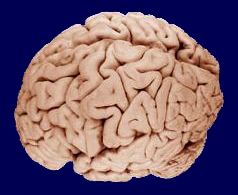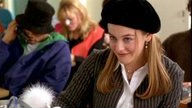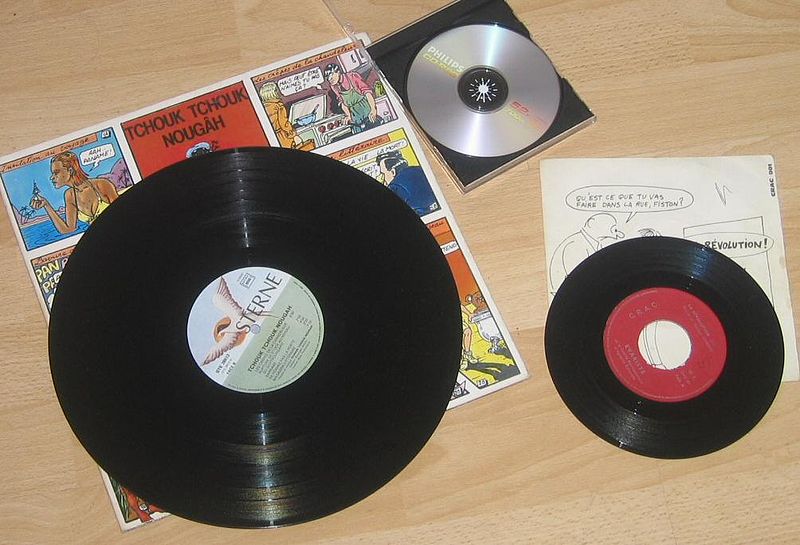Culture & Religion
All Stories
Mozart was a slow learner, Michael Jordan played junior-varsity, and Ted Williams refused dates to practice baseball. It all goes to show innate genius doesn’t actually exist, says David Shenk.
What is consciousness, where did it come from and where is it going? U.S.C. neuroscientist Antonio Damasio discusses why self-awareness evolved and how it contributes to human culture.
More than a third of business owners—Richard Branson and Ted Turner among them—may be dyslexic says a new documentary featuring entrepreneurs who say the reading disorder is a gift.
In a constantly changing world, it sometimes seems that our only anchor is personal character but put it to the test and this supposedly durable good begins to look quite flimsy.
The Urn is 100% biodegradable, made of coconut shell, compacted peat, and cellulose.
They cling to power rather than develop their economies, doing little to create jobs and lift millions out of poverty. So says former UN chief Kofi Annan about Africa’s leaders.
Osama Bin Laden’s death illustrates the power of social media to spread news, and fast, and to provide a window into reader reactions world-wide.
A new model for understanding human decision-making, called Deep Rationality, acknowledges the irrationality of human decision-making but suggests that it might be rooted in evolution.
A look at China’s leadership and how, since the Tiananmen crisis, differences over power and policy have been fought out behind a rigorously sustained facade of unity and discipline.
Meet Muslim women frustrated with current leadership and confronting prejudice in their fight—not for the fainthearted—against extremism. “We need the discourse of women.”
What’s special about Facebook’s Deals? What’s in it for users and what are the implications for direct competitors Groupon and LivingSocial and, down the track, PayPal?
About 500 million people in India have no form of reliable identification. The government has started a five-year $430m project to address that with a huge biometric database.
When we read, we feel a real human connection without engaging in real relationships. “Something else important must be happening,” says psychology professor Shira Gabriel.
Femmes fatales, adulteresses, killers, cultural rule-breakers—every age seems to be riveted by women who are less sugar, more spice. Who are the women that have attracted us to beauty’s dark side?
On the anniversary of William Shakespeare’s death (and possibly his birthday too), Pulitzer-Prize winning novelist Jane Smiley wrote this personal reflection for Big Think.
Watch the dramatic scene unfold as King Henry hesitates to ponder–or does he?–whether to hang his friend Bardolph, which is given dramatic treatment in Kenneth Branagh’s 1989 film.
ProPublica, a non-profit news startup, scooped up a Pulitzer Prize on Monday, its second in two years and the first ever for a series of stories that were not also published in print.
While the British Navy may have secured military victory for the British Empire, Shakespeare’s words secured the peace.
We spend our lives inside buildings, our thoughts shaped by their walls. How do different spaces influence cognition? Is there an ideal kind of architectural structure for different kinds of thinking?
Tiny Fey’s new memoir, Bossypants, sets out some smart principles of management and leadership among amusing and insightful anecdotes.
As the single most-quoted author in the English language, it should not be much of a surprise that Shakespeare is often misquoted.
Fifty years after Gagarin, plans abound for crewed missions into deeper space. A near-Earth asteroid landing, one-way trip to Mars, or hover point hiatus in mid-space, anyone?
Is chaos the natural order for the innately diverse and fragmented nature of music and its associated industry, asks singer-songwriter Catherine Hol.
Reporting from last weekend’s Shakespeare Association of America conference in Bellevue, Washington, Bernadette Meyers brings us the top five ideas.
Despite our legislative attempts at equality, the beautiful people of the world still have it better. Numerous studies show that attractive people get better treatment in nearly every scenario.
The Earl of Oxford rears his ugly head again in a major new Hollywood film that claims Shakespeare never wrote a single word.
One of the most popular Shakespearean analogies presents George W. Bush as Henry V. But does it hold up?
Peter Diamandis has suggested we need to practice “planetary redundancy” and back up crucial information “off the planet.” What achievements of mankind deserve a place on this digital Noah’s Ark?
Digital technologies and the Internet are affecting every aspect of film production, distribution, marketing, and consumption and have spawned the online film festival.
While Shakespeare’s plays speak to all time periods, attempts to make them explicitly address contemporary issues often fall flat. Here the Wall Street Journal critic discusses how NOT to adapt […]



























